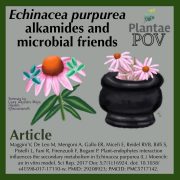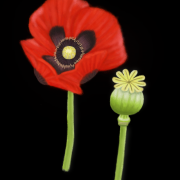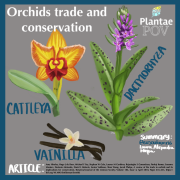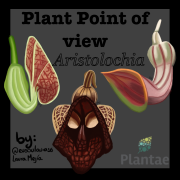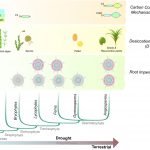Plant Point of View: Caladenia pectinata and Drakaea livida, sexually deceptive orchid queens
 In a remarkable feat of mimicry, some flowers have evolved similarities to female insects; they thus attract male insects who, after a disappointing visit, still manage to serve as pollinators.
In a remarkable feat of mimicry, some flowers have evolved similarities to female insects; they thus attract male insects who, after a disappointing visit, still manage to serve as pollinators.
How do we understand how floral traits affect pollinators? The answer may not be simple. In a 2018 article, Phillip and collaborators started a quest to uncover how two orchids with very different flower shapes, Caladenia pectinata and Drakaea livida, attract and affect the behavior of the same pollinating wasp, Zaspilothynnus nigripes.
Being deceptive is a cool strategy in Orchidaceae. Species in almost 20 genera use sexual deception (mimicking a female insect) as a strategy for pollination. This deception is not solely focused on generating insect-like shapes, and chemistry may also play a role.
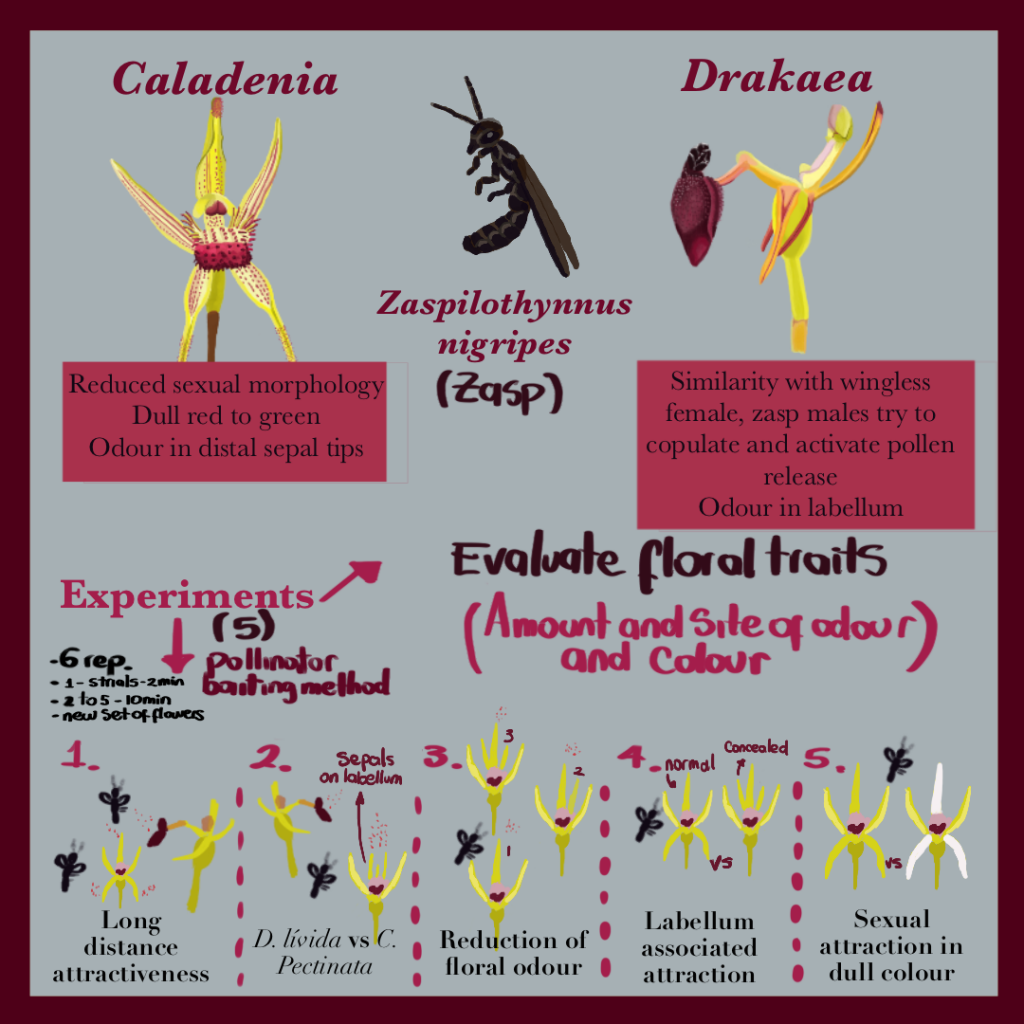 To address the role of visual cues and chemistry in sexual deception of this wasp, several experiments were carried out using the pollinator baiting method, where pollinator visits and behavior are recorded in response to various experimentally modified flowers. The study looked at long distance attractiveness, and the effect of color and floral odor on attraction and attempted copulation.
To address the role of visual cues and chemistry in sexual deception of this wasp, several experiments were carried out using the pollinator baiting method, where pollinator visits and behavior are recorded in response to various experimentally modified flowers. The study looked at long distance attractiveness, and the effect of color and floral odor on attraction and attempted copulation.
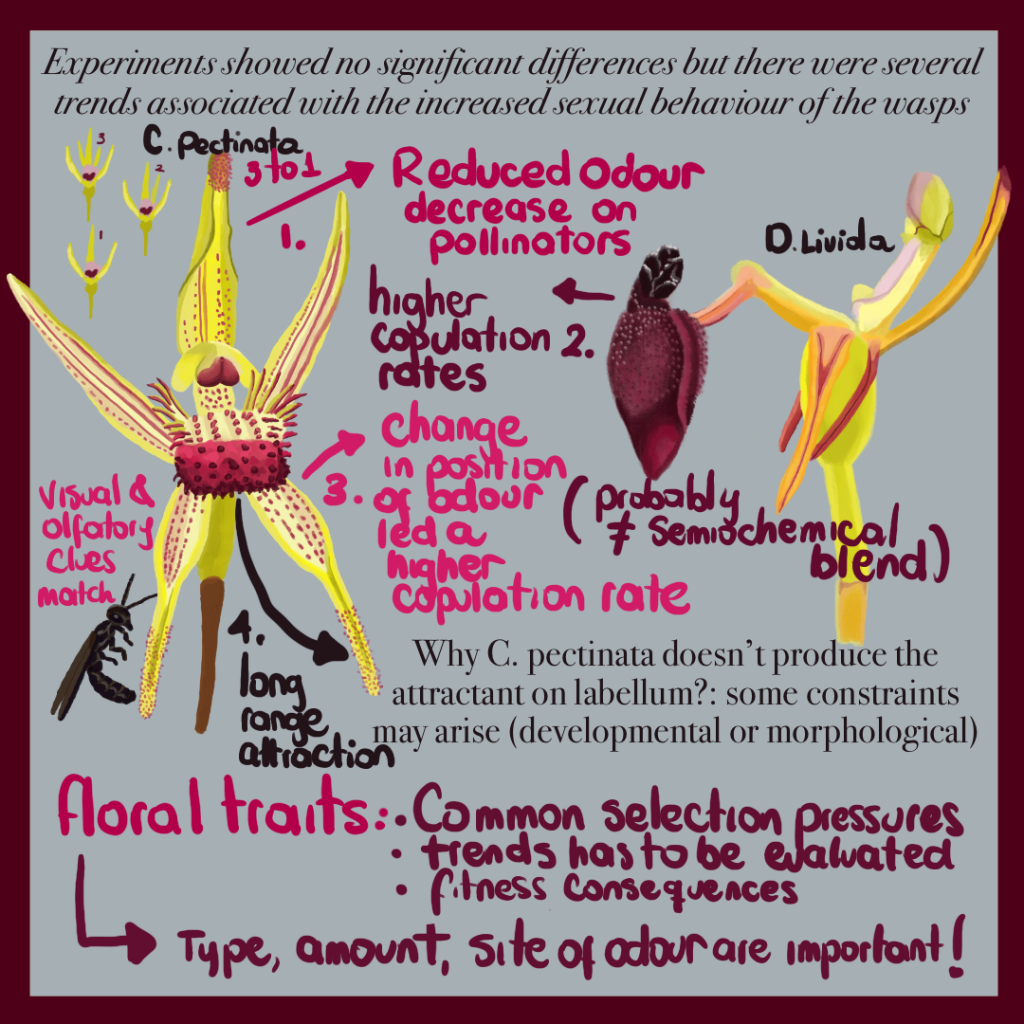 Odor in general induced a higher copulation rate in D. livida than in C. pectinata, and color was not an important factor when considering attraction. However, wasp visits increased when the amount of odor was increased in C. pectinata. Furthermore, when the source of the odor was moved from the distal sepals to the female-insect appearing labellum (so the olfactory and visual cues coincided), copulation rates were enhanced.
Odor in general induced a higher copulation rate in D. livida than in C. pectinata, and color was not an important factor when considering attraction. However, wasp visits increased when the amount of odor was increased in C. pectinata. Furthermore, when the source of the odor was moved from the distal sepals to the female-insect appearing labellum (so the olfactory and visual cues coincided), copulation rates were enhanced.
The study demonstrates that there is flexibility among species in how sexual deception can be uses to attract pollinators.
Original article: Phillips, R.D. and Peakall, R. (2018) An experimental evaluation of traits that influence the sexual behaviour of pollinators in sexually deceptive orchids. J. Evol. Biol. 31: 1732-1742.
 Laura Alejandra Mejía is a biologist, MSc pharmaceutical sciences from Universidad Nacional de Colombia, and a 2019 Plantae Fellow. My main interests are plant biology, application of plant metabolites, and the creation and dissemination of science for the public. You can follow me on Twitter @Eusoulaura16 and Instagram: @eusoulaura16.
Laura Alejandra Mejía is a biologist, MSc pharmaceutical sciences from Universidad Nacional de Colombia, and a 2019 Plantae Fellow. My main interests are plant biology, application of plant metabolites, and the creation and dissemination of science for the public. You can follow me on Twitter @Eusoulaura16 and Instagram: @eusoulaura16.



